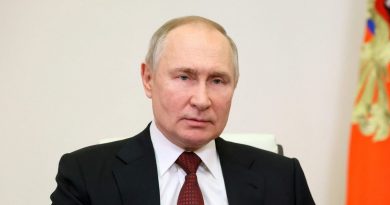UK could face more chemical attacks after Salisbury Novichok poisonings, defence secretary warns
THE UK could face more chemical attacks in the wake of the Salisbury Novichok poisonings, the Defence Secretary has warned.
Ben Wallace said people can now learn how to make such weapons online, with the potential to "turn what might be ambitions into realities" for a whole range of attacks.
Speaking after the attempted killing of Sergei Skripal in Salisbury on March 4 2018, Mr Wallace said Russia remained an "adversary" of the UK.
Mr Skripal, a then 66-year-old ex Russian spy turned double agent for MI6, and his 33-year-old daughter Yulia were left seriously ill after coming into contact with the deadly nerve agent.
Meanwhile Dawn Sturgess, 44, died after she and her partner Charlie Rowley fell ill in nearby Amesbury months later.
Ben Wallace told the PA news agency: "Dawn Sturgess lost her life as a result of this attack and potentially hundreds of people's lives were put at risk given the weapon that was used.
That proliferation means that many people in the world have access to knowledge that can turn what might be ambitions into realities, around everything from conventional attacks to CBRN (chemical, biological, radiological, nuclear) capabilities.
"Now you can find out how to make chemical weapons on the internet."
He added: "That proliferation means that many people in the world have access to knowledge that can turn what might be ambitions into realities, around everything from conventional attacks to CBRN (chemical, biological, radiological, nuclear) capabilities."
Mr Wallace also said it was clear that Russia was still an "adversary" of the UK three years on from the attempted killing of former spy Sergei Skripal using a novichok nerve agent.
The defence secretary said Moscow's willingness to use a banned chemical weapon on British streets represented a challenge to international law and world order.
He said: "We can't take anything for granted in the way we maybe did in the Cold War when there was a nice, static and fairly sterile relationship with a fence down the middle of Europe.
"What I worry about is when people have disregard for the international rule of law and domestic rule of law and those people are no longer purely terrorists/organised criminals but other states.
"It challenges many of the values we stand for and it challenges the world order. That is something that should worry us all."
His comments come as a chemical and biological weapons expert warned rogue states and terror groups could even try to use coronavirus or similar viruses for attacks in future.
Hamish de Bretton-Gordon told PA Covid-19 has shown how a "not very virulent pathogen can bring the world to its knees" and this will not go "unnoticed by bad actors".
Although Mark Andrews, chairman of Wiltshire Police Federation, said extra chemical and biological training introduced after the Novichok attack has equipped officers with much-needed skills to thrive in battling a health crisis.
'DETERMINED FOR JUSTICE'
Dawn Sturgess came into contact with a counterfeit Nina Ricci perfume bottle in 2018, believed to have concealed the lethal chemical for use against the Skripals before it was thrown away.
Wiltshire Police Detective Sergeant Nick Bailey was also treated after coming into contact with the substance and has since left the force.
Ms Sturgess' family previously called on the Government for answers but there are fears they may never get justice unless two men known as Alexander Petrov and Ruslan Boshirov, who are accused of carrying out the attack, leave Russia.
The pair are still wanted by UK police after the Crown Prosecution Service authorised charges against them.
Counter-terrorism police are still appealing for witnesses and anyone with information to come forward, saying this week that they "remain as determined and committed as ever to bring those responsible for this attack to justice".
A pre-inquest review into Ms Sturgess' death is due to take place at the end of this month.
Meanwhile others who played a key role in responding to the incident recalled how the events unfolded.
Professor Tim Atkins, who provided scientific advice to the emergency services after his team at the Defence Science and Technology Laboratory (Dstl) at Porton Down identified the substance used, said his blood ran "cold" once he learned it was Novichok.
Tracy Daszkiewicz, the public health chief charged with containing the attack, described her "total disbelief" after the nerve agent resurfaced seven miles away months later and how she was "absolutely floored" by the death of Ms Sturgess.
The city has now been officially declared "safe" again after it was decontaminated of Novichok in a large scale clean-up involving the military.
Source: Read Full Article







